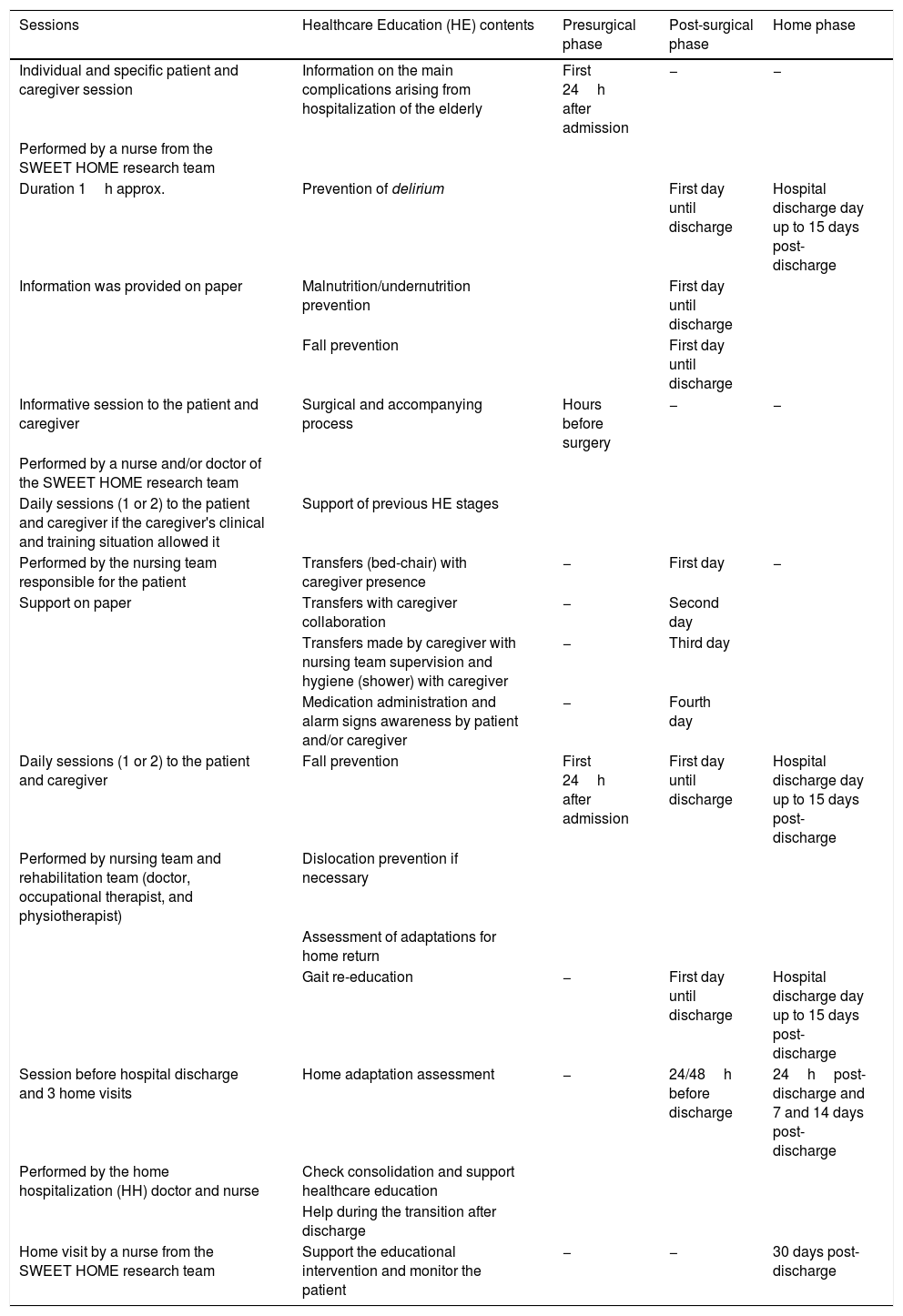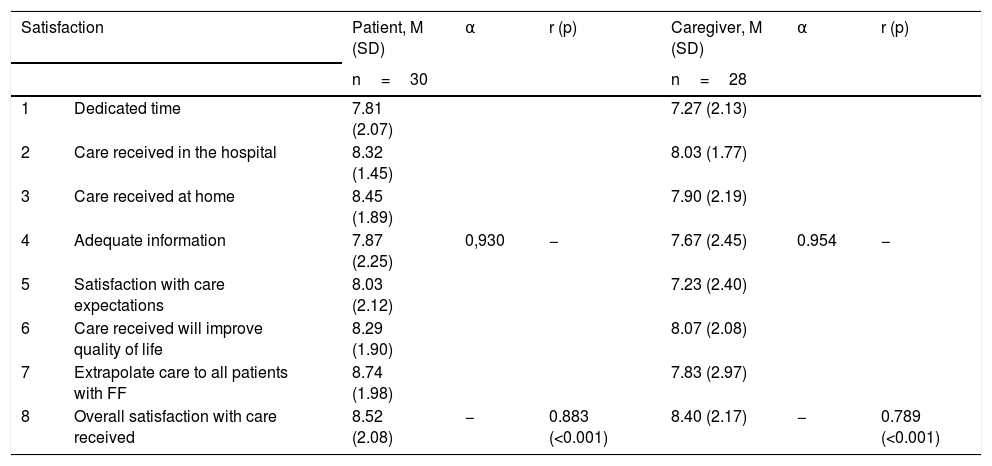Hip fracture is a common injury among elderly patients. The main goal of our study was to assess the effectiveness of a multidisciplinary educational intervention aimed at hip fracture patients to promote home discharges and reduce in-hospital complications.
Materials and MethodsA quasi-experimental study was performed by taking repeated measurements at hospital admission, at hospital discharge, and at both 30 days and one year of discharge. Patients aged ≥65 years with hip fracture who were admitted to the Orthogeriatric Service between February 2016 and January 2017 were included in the study. The educational intervention consisted in two coordinated actions: patient education administered during their hospitalization and multimodal support provided during their discharge home.
ResultsA total of 67 patients were included in the study (77.6% of whom were women aged 84.19±7,78). Of these, 70.1% were discharged home, which doubles the figures recorded in the 2014–2015 period. The rate of readmission at 30 days and one year of the discharge was 8.5%. At the one-year follow-up, the patient’s dependence to perform basic activities of daily living was nearer to the pre-fracture level (Barthel: 86.67±19.31; 94.33±14.66), their mobility had improved in comparison with the time of discharge (Parker: 4.73±1.84; 6.73±2.76; Timed Up and Go Test: 38.29±21.27; 21.91±10.97), and their cognitive function had not worsened significantly. The patient education measures improved the patients’ autonomy as perceived by the patients, the caregivers, and the healthcare providers. Satisfaction with the healthcare received was high.
ConclusionsAs a novelty to the already described benefits in orthogeriatric care models, this study would contribute by proving an increase of the number of patients discharged home in a safe condition.
La fractura de fémur (FF) es una lesión frecuente en personas de edad avanzada. El objetivo fue evaluar la efectividad de una intervención educativa multidisciplinar en pacientes con FF para favorecer el regreso al domicilio y disminuir las complicaciones hospitalarias.
Material y métodoEstudio cuasiexperimental con medidas repetidas al ingreso, alta, 30 días y al año de seguimiento. Se incluyeron pacientes ≥ 65 años con FF ingresados en la Unidad de Ortogeriatria entre febrero 2016 y enero 2017. La intervención educativa constó de dos actuaciones coordinadas: una educación sanitaria durante la hospitalización y un soporte multimodal durante la transición al domicilio.
ResultadosSe incluyeron 67 pacientes (77,6% mujeres, edad 84,19±7,78). Regresaron al domicilio el 70,1%, doblando la cifra de los años 2014 -2015. Hubo un 8,5% de reingresos a los 30 días y al año. Al año, el nivel de dependencia fue cercano al nivel prefractura (Barthel: 86,67±19,31; 94,33±14,66), la movilidad mejoró respecto al alta (Parker: 4,73±1,84; 6,73±2,76; Timed Up and Go test: 38,29±21,27; 21,91±10,97) y el rendimiento cognitivo no empeoró de forma significativa. La percepción de pacientes, cuidadores y profesionales fue que la Educación Sanitaria mejoró la autonomía del paciente. La satisfacción con el proceso asistencial fue alta.
ConclusionesEste estudio aporta como novedad a los beneficios ya descritos en los modelos asistenciales ortogeriátricos, el incremento del número de pacientes que regresan al domicilio en condiciones de seguridad.












